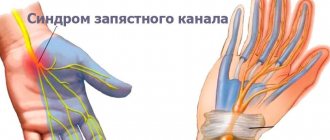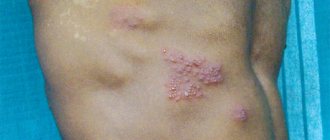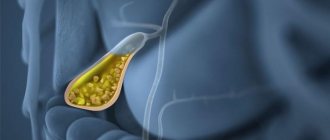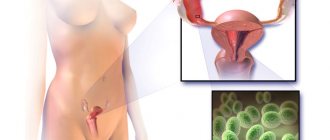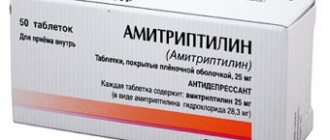General information
Irritable bowel syndrome is a condition that is defined as a functional bowel disorder that is biopsychosocial in nature. The basis for the manifestation of this disease is considered to be the interaction of two different mechanisms. This is a psychosocial effect and sensorimotor dysfunction, which is characterized by problems with motor activity and visceral sensitivity of the intestines. To provide high-quality treatment for this condition, a special approach to diagnosis, a differential diagnosis, and also ensuring the correct course of treatment for the disease are required.
General picture of the disease
If there is irritation in the intestinal area, constant pain and diarrhea, a person usually begins to worry about the presence of some serious diseases. Similar symptoms occur when the gastrointestinal tract is infected with microbes, dangerous bacteria, with the development of ulcers and inflammation of internal organs.
However, the main feature of this syndrome is that blood and stool tests turn out to be normal. No abnormalities are usually detected, but the patient continues to be bothered by the following symptoms:
severe pain in the stomach, which can occur just like that or overtake a person after eating;- problems with bowel movements, loose stools or constipation;
- lack of appetite;
- The patient may also be bothered by nausea and general weakness of the body.
The main symptom is pain in the intestines. Moreover, it can appear for a couple of minutes or for several hours. The pain is nagging, sometimes localized in a specific area, but often spreads to the entire abdomen.
Irritable bowel syndrome with diarrhea primarily affects patients over 20 years of age. According to statistics, 40% of patients belong to the age group from 35 to 50 years. This problem occurs more often in women, but it does not escape men either.
Most patients prefer not to see a doctor at all, believing that stomach pain will go away on its own as suddenly as it appeared. However, such problems in the intestines can lead to serious consequences, problems with digestion of food and bowel movements.
Prevalence of Irritable Bowel Syndrome
Most often, people of working age suffer from this disease: these are people from 25 to 40 years old. At the same time, the presence of symptoms of this disease in people who have already crossed the sixty-year mark makes experts doubt such a diagnosis.
Irritable bowel syndrome is a disease with a high incidence in many countries. However, about two thirds of people who complain of symptoms of this disease do not seek qualified treatment at all. The disease is equally common in both sexes.
Treatment with folk remedies and diet
Treatment of irritable bowel syndrome with medications is recommended to be combined with folk remedies and diet.
The diet is selected based on the dominant symptoms. The patient needs to keep a diary and note the foods consumed in it and record the symptoms of the disease. This will help you identify the food that triggers your IBS flare-up so you can avoid it.
If IBS is combined with constipation, increasing the amount of soluble fiber in the diet, which is found in fruits, root vegetables (carrots, potatoes), oats, barley, and rye, can help. On the contrary, for diarrhea it is better to eat foods high in insoluble fiber - whole grains, bran, nuts and seeds.
If a patient is bothered by persistent bloating, limiting the intake of foods containing oligosaccharides, disaccharides, monosaccharides and polyols may help. These substances are quickly absorbed in the intestines, which is accompanied by the release of large amounts of gases. Such products include regular, leafy, Chinese, cauliflower and Brussels sprouts, broccoli, peas, chickpeas, lentils, and beans.
Patients often give preference to folk remedies to combat irritable bowel syndrome. This can be done, but first you need to consult a doctor, since some of the ingredients used in this treatment may interact with the medications a person is taking. Like drug treatment, the use of traditional medicine for IBS depends on the symptoms of the disease:
- Peppermint infusion helps with frequent abdominal cramps. To prepare it, pour 2 tablespoons of dry leaves into a glass of boiling water and leave for 20 minutes. The infusion can be used instead of tea.
- Dill infusion can help with bloating. To prepare it, pour a tablespoon of herb or dill seed into 500 ml of boiling water and leave for 2 hours. Drink 100-150 ml three times a day before meals.
- For diarrhea, an infusion of pomegranate peels is sometimes used. Pour 250 ml of boiling water over a tablespoon of dry peels and leave until pink. Should be consumed at once.
- Psyllium seeds can help with constipation. To do this, 2 dessert spoons of seeds need to be soaked in 100 ml of water for 30 minutes, after which they need to be eaten.
In addition, exercise is beneficial for patients with IBS - it helps relieve depression and stress, and stimulates the normal functioning of the digestive tract.
Irritable bowel syndrome is a common condition. This diagnosis is made if no other causes of the existing symptoms of digestive disorders can be found. Before treating irritable bowel syndrome with medications, you should try to eliminate its symptoms through diet and exercise.
Author: Taras Nevelichuk, doctor, especially for Zhkt.ru
Symptoms of Irritable Bowel Syndrome
Irritable bowel syndrome should be understood as the presence of a constant set of functional disorders that last for at least twelve weeks over the past year. They are expressed by pain and a feeling of certain discomfort in the abdomen. With irritable bowel syndrome, the patient experiences abdominal pain . Its intensity can be either not very high (the pain is quite tolerable and inconsistent), or particularly intense (the pain is sometimes unbearable, reminiscent of intestinal colic ). Very often, pain appears after eating, bloating peristalsis increases . After bowel movements and passing gas, the pain often subsides. At night, it mostly does not bother the patient.
In addition, a person simultaneously experiences changes in the consistency and frequency of stool. During 25% of the illness, these signs are accompanied by at least two persistent symptoms of intestinal dysfunction. In this case we are talking about flatulence , the presence of mucus in the feces, changes in the process of defecation (the presence of tenesmus, imperative urges, a feeling of incomplete bowel movement, the need for effort during the act of defecation).
It is also common for a person with irritable bowel syndrome to exhibit some other symptoms. Thus, his complaints are often changeable and recurrent in nature; progression of the disease is not observed, the person does not lose weight, he does not develop anemia , fever , however, under the influence of a stressful situation, the disorder may worsen.
In addition, there may be a connection between this syndrome and other functional disorders, for example, autonomic asthenia syndrome , irritable stomach syndrome , neuroses , irritable bladder syndrome and other conditions.
Irritable bowel syndrome is characterized by a chronic course of the disease with relapses, however, without progression. As a rule, the disease does not provoke serious complications. As a result, we are talking about a favorable prognosis. However, it should be noted that this disease significantly affects a person’s quality of life, reducing his ability to work, impairing sleep, rest, and sex life.
Today, this disease is considered a widespread illness among people. But due to the vagueness of its symptoms, very often patients do not turn to specialists at all, thereby aggravating the condition.
Causes
People suffering from irritable bowel syndrome almost always have higher levels of anxiety than the average population. And this fact is explained simply: the main cause of the disease is “nervous soil”.
At least 94% of patients with IBS have any anxiety disorders, as well as neurotic depression.
Why is this happening? How does chronic anxiety lead to intestinal motility disorders?
Corticotropic releasing hormone
Under stress and chronic anxiety, the hypothalamus increases the release of corticotropic releasing hormone (CRH), which affects peristalsis.
- Under the influence of the hormone, the peristalsis of the small intestine slows down. This leads to excessive proliferation of microorganisms in it (including beneficial ones) and, as a consequence, to constant flatulence.
- The hormone affects the large intestine in the opposite way - it increases its contractions, which inevitably leads to diarrhea.
- An increased level of CRH increases the sensitivity of the entire intestine to foods and hormones. As a result, a person develops hypersensitivity even to those foods that he previously assimilated normally, for example, dairy.
- Another explanation for why elevated CRH levels are one of the main causes of IBS is the hormone's effect on inflammation levels. Corticotropic releasing hormone is a pro-inflammatory compound that increases inflammatory activity throughout the body, including in the intestines.
Adrenaline and norepinephrine
Eternal companions of stress. They slow down peristalsis, which can subsequently increase sharply.
Serotonin
95% of serotonin is produced in the gastrointestinal tract. Neurotic conditions and depression do not affect the level of this serotonin as much as the one that works in the central nervous system. However, there is an effect, and it may be one of the reasons for the development of irritable bowel syndrome. Since when the production of serotonin decreases in the gastrointestinal tract, chronic constipation develops, and when it increases, diarrhea develops.
Gastrointestinal infections
It has been noted that IBS develops 6-8 times more often after a gastrointestinal infection.
It can be argued that this has nothing to do with the psyche. But it's not that simple. It has already been said above that chronic anxiety and restlessness lead to an increase in inflammatory activity in the body.
That is why, after suffering a gastrointestinal infection, for example, salmonellosis, anxious and suspicious patients more often begin to suffer from IBS than those who survived the disease mentally calmly. And even before her, he had not been noticed in excessive excitement.
Oxidative stress
Many patients with irritable bowel syndrome have increased sensitivity to oxidative stress. That is, their body does not cope well with the destruction of free radicals, as it lacks enzymes such as superoxide dismutase, catalase, and glutathione peroxidase.
Part of the problem is genetic. But at the same time, it is known for certain that chronic stress undermines the body’s ability to destroy free radicals and reduces the production of natural antioxidant enzymes.
Imbalance of intestinal microflora
In people suffering from IBS, the species composition of the intestinal biocenosis is often changed. Could such a change be of a nervous nature?
Yes and no.
Chronic worry and anxiety themselves do not kill beneficial microflora, replacing them with pathogenic ones. But they often change a person’s eating behavior. And these changes can already affect the biocenosis.
Thus, neurotic patients often have an increased craving for sweets and unhealthy snacks. To calm down, they constantly reward themselves with cakes, sweets, hamburgers and chips. Such a diet can negatively affect the species composition of the intestinal biocenosis and its metabolic activity, contributing to the development of IBS.
At the same time, the disrupted functioning of the microflora has a negative impact on the human psyche. What aggravates the course of anxiety-neurotic disorder, and after it IBS.
Increased permeability of the intestinal wall
Many factors lead to increased permeability of the intestinal wall, such as increased sensitivity to lectins and gluten. But one of the main reasons that increases intestinal permeability is chronic stress.
Change in the amount of bile
The amount of bile secreted affects the intensity of peristalsis. If very little is secreted, constipation begins; if too much, diarrhea occurs.
Anxious people often have biliary dyskinesia, which leads to either too little or too much bile. And this causes the classic symptoms of irritable bowel syndrome - constipation followed by diarrhea.
Low acidity
Acid in the stomach prevents the growth of bacteria. When the acidic environment enters the small intestine, it is neutralized. However, its activity is sufficient to protect the small intestines from microorganisms.
When acidity is low, the small intestine can develop bacterial overgrowth (SIBO), which leads to IBS.
With neurosis, gastritis often appears, which can be either hyperacid or hypocidal, that is, occurring with a decrease in the acidity of gastric juice.
In addition, anxious individuals often suffer from nervous heartburn and acid reflux. And they take proton pump inhibitors that reduce acidity to relieve these symptoms.
Changes in the production of intestinal hormones
Hormones that take part in digestive processes are synthesized in the human intestine. These are motilin, vasoactive intestinal peptide, cholecystokinin and many others.
In people with anxiety disorders exhibiting symptoms of IBS, the production of these bioactive compounds is often impaired. For example, they may not be released in sufficient quantities in response to meals. But it is too much to throw away against the background of psychological experiences.
Increased sensitivity to sex hormones
Suspicious women who believe that they suffer from VSD and other unknown ailments demonstrate increased sensitivity to normal changes in the level of sex hormones during the menstrual cycle. It is this hypersensitivity that explains the increased heaviness in the heart in many anxious patients during certain phases of the cycle.
Hypersensitivity to estrogen and progesterone increases abdominal pain and gas formation. Therefore, on those days of the month when the level of these hormones is maximum, women with IBS suffer the most from their illness.
The main cause of irritable bowel syndrome is a neurotic disorder.
However, IBS should not be confused with ordinary nervous diarrhea. The main difference between these conditions is that psychogenic diarrhea can occur once and then disappear.
I suffer from IBS regularly, and sometimes constantly. The symptoms of this functional disorder worsen not only in moments of acute excitement, but also as if out of nowhere. At the same time, a person who is accustomed to living with chronic anxiety may not even notice its presence.
Diagnosis of irritable bowel syndrome
It is customary to define three different types of irritable bowel syndrome, depending on the symptom that predominates. This is a disease in which flatulence and abdominal pain predominate; disease with predominant constipation ; irritable bowel syndrome, in which diarrhea .
In the process of establishing a diagnosis, the specialist must initially exclude the most common causes of intestinal irritation. This is, first of all, the chronic effect of poor nutrition and taking medications. Among the foods that affect the intestines as irritants are alcohol, fatty foods, coffee, and foods that produce gas. Also, intestinal functions can be negatively affected by eating too much food during banquets, or changing the usual approach to nutrition due to trips and travel. Among medications, the intestines are often irritated by laxatives, iron, potassium, bile acids, antibiotics , etc.
In addition, symptoms of irritable bowel syndrome appear in women under certain physical conditions - during the period before menstruation, during pregnancy , during menopause .
Signs of this disease also appear after severe intellectual and emotional stress, excitement, and fear. However, when the person’s mental state normalizes, they disappear.
Therefore, the specialist must conduct a detailed interview with the patient and assess the presence of a persistent set of clinical symptoms. In frequency, we are talking about pain in the lower abdomen, which is combined with dysfunction of the distal parts of the intestine and cannot be explained by disorders of a morphological or metabolic nature. Consequently, organic pathology is excluded.
As symptoms that the doctor should pay special attention to when determining the course of the disease, one should note a violation of transit and the act of defecation. So, a pathology should be considered a bowel movement that occurs more than three times a day or less than three times a week. As a rule, with irritable bowel syndrome, diarrhea most often occurs in the first half of the day, after a person has had breakfast. About half of patients note that there is mucus in the stool. At the same time, diarrhea at night, the presence of blood in the stool, and a person’s sudden weight loss exclude the diagnosis of “irritable bowel syndrome.”
When visiting a doctor, patients usually express complaints that can be roughly classified into three groups.
Firstly, there are disorders of a neurological and autonomic nature : poor sleep or drowsiness , migraine, feeling of a lump in the throat, impotence , dysmenorrhea , etc. Such conditions are typical for approximately half of the patients.
About eighty percent of patients complain about signs of digestive diseases : they experience nausea and vomiting, belching, pain in the right hypochondrium, etc.
A relatively small number of patients (15 - 30%) complain of psychopathological disorders - anxiety, depression, hysteria, phobias, panic attacks , etc.
If there are such complaints and, accordingly, suspicion of irritable bowel syndrome, the patient is prescribed a colonoscopy and sigmoidoscopy. Such studies allow us to exclude many morphological and metabolic disorders. a biopsy is also prescribed .
In general, the diagnosis of this disease is a rather complex process, so it is usually carried out in stages.
So, at the first stage, the doctor determines a preliminary diagnosis. Next, it is important to identify the symptom that dominates and thus determine what the clinical phase of the disease is. The third stage of diagnosis is differential diagnosis. Next, the doctor prescribes a series of tests: clinical and biochemical blood tests, scatological examination, ultrasound of the pelvic and abdominal organs, colonoscopy and irrigoscopy.
After all the studies have been completed, the patient is prescribed a course of therapy for at least six weeks. After this, the attending physician re-evaluates the established diagnosis. So, if the treatment gives the desired effect, then we are talking about the final diagnosis. If there is no such effect, then there is a need for additional research.
Prevention and recommendations
To prevent the disease, it is recommended not to disturb sleep; it should be constant and complete. Physical exercise will not harm; on the contrary, it will help normalize intestinal function.
Maintain a healthy diet and lifestyle without drinking alcohol. A person must strictly adhere to daily schedules, food intake, physical activity, performance and the time of bowel movements.
Especially women and children should have such a schedule.
If it is difficult for a person to get out of psycho-emotional stress, you can contact a qualified psychologist. But an important aspect in prevention is a general understanding of the disease.
Irritable bowel syndrome does not develop any complications from the gastrointestinal tract.
It is also necessary to avoid unnecessary use of medications, such as sedatives, tranquilizers, etc. These drugs suppress the normal functioning of many important systems in the body, for this reason weakness may occur and the body becomes susceptible to various diseases.
Prevention of irritable bowel syndrome
Prevention of the disease is aimed at preventing the manifestation of its symptoms. This is, first of all, the right approach to nutrition. Depending on the prevalence of symptoms (constipation, diarrhea), you should adhere to the nutritional principles described above.
Daily drinking regimen is important: drinking at least six glasses of water per day will help normalize the condition of the intestines. However, water should not be drunk while eating.
In addition, you should lead a calm lifestyle, avoid stressful situations if possible, and constantly be physically active. Even a simple walk in fresh air, lasting at least thirty minutes, can improve your condition if problems with intestinal functions occur. However, you should take a walk every day.
Regular quality rest, the ability to fully relax and restore emotional balance are necessary.
When taking any medications, it is important to monitor the state of your intestines. If there is a violation, you should talk to your doctor about the possibility of changing the drug.
Drug therapy
The choice of the prescribed drug directly depends on which syndrome is predominant in a particular patient - diarrhea, constipation or abdominal pain. Of course, if there is a combination of symptoms, then several drugs are prescribed. So…
If constipation predominates, use:
- lactulose preparations (Duphalak, Goodluck, Normaze, Portalak, Lizalak and others) – stimulates peristalsis (wave-like movements in the direction of “exit”) of the intestine and the proliferation of lactic acid bacteria; the dose for an adult is 15-60 ml per day, divided into 2-3 doses; the course of treatment lasts from 3 to 4 weeks or more; if diarrhea occurs, the drug is discontinued; prescribed with caution to persons with diabetes mellitus; do not use for bleeding from the rectum, intestinal obstruction, colo- and ileostomy, or in case of suspected appendicitis;
- Mucofalk (analogs - Fiberlex, Naturolax and others) - regulates the activity of the intestines, facilitating the movement of contents through it; apply 1 teaspoon (5 g) 2-6 times a day; It is important to maintain an interval of 30-60 minutes between taking this drug and other drugs; when taking it, you must drink at least 1.5 liters of liquid per day;
- macrogol (Lavacol, Fortrans, Forlax) – approved for use exclusively in persons over 15 years of age; effectively cleanses the rectum; apply 10-20 g per day in the morning;
- itopride (Itopra, Itomed, Ganaton) – enhances the motility of the digestive tract; The recommended dose is 150 mg per day, divided into 3 doses; does not apply during pregnancy and lactation;
- domperidone (Motoricum, Motilium, Motilakt and others) – also improves gastric motility, accelerating its emptying; Take 1 tablet (10 mg) 3 times a day 20 minutes before meals.
If diarrhea predominates, the patient is advised to:
- loperamide (Imodium, Diara, Lopedium and others) – slows down intestinal motility, increasing the time it takes for feces to pass through it; the dosage is selected individually, the maximum daily dose is 16 mg; admission in childhood according to strict indications and under the supervision of a doctor;
- simethicone (Espumizan, Infacol, Sab Simplex and others) – reduces the content of gases in the intestines; the dosage is selected individually;
- Smecta and its analogs Diosmectite, Neosmectite are an effective adsorbent that also has an enveloping and protective effect on the mucous membrane of the digestive tract; apply 1 sachet orally 2-3 times a day;
- bismuth preparations (De-nol, Vis-nol, Ventrisol and others) – have a pronounced gastroprotective effect; apply 120 mg 4 times a day half an hour before meals and before bedtime; do not consume any drinks, food or antacid medications (those that reduce the acidity of gastric juice) half an hour before and after taking this medication; During therapy you should abstain from alcohol;
- probiotics (Laktiv, Enterozermina, Lactofiltrum and others) – contain bacteria necessary for digestion, which are “washed out” from the intestines during diarrhea.
List of sources
- A short guide to gastroenterology I Ivashkin, V. T. [et al.]; edited by V.T. Ivashkina, S.I. Rapoport, F.I. Komarov. - M.: 000 "M-Vesti Publishing House", 2001;
- Ivashkin V. T. Irritable bowel syndrome: A practical guide for doctors. - M.: RGA, 1999;
- Simanenkov V.I. Grinevich V.B., Potapova I.V. Functional and psychosomatic disorders of the gastrointestinal tract. - St. Petersburg, 1999;
- Ardatskaya M.D. Irritable bowel syndrome: current state of the issue, standards of diagnosis and treatment. Spr Polyclinic Doctor 2009;
- Frolkis A.V. Functional diseases of the gastrointestinal tract. L.: Medicine, 1991.
Causes and triggers of IBS
There are still no clearly established causes of irritable bowel syndrome.
Scientists believe that discomfort signs can be provoked by a large number of disorders, both physiological and mental.
There are provoking factors that are among the main causes of irritable bowel syndrome. Factors and reasons include:
- a disorder in the nerve endings between the intestines and the brain - one of the functions of the brain is to control the functioning of the organs of the digestive system. When nerve connections are damaged, the normal functioning of the gastrointestinal tract is disrupted;
- disturbance of the intestinal motility process - intense motility provokes diarrhea, and a slow motility process causes constipation. Rapid contraction of the muscular system leads to painful sensations;
- mental disorders - people suffering from IBS very often experience panic, depression and other pathological experiences;
- bacterial gastroenteritis - various types of infections in the gastrointestinal tract provoke the development of IBS. There are cases that gastroenteritis does not cause irritable bowel syndrome;
- Hormones and neurotransmitters - intestinal disorders can occur due to changes in the number of chemical elements that transmit specific impulses to the gastrointestinal tract. It has been established that signs of IBS in women are very pronounced during menstruation, and during menopause they may be completely absent;
- hereditary factor - if someone in the family has a person who has irritable bowel syndrome, then the likelihood of inheriting the pathology is very high;
- dysbiosis - a violation of microbial-associative interactions in the colon with the active growth of pathogenic and proteolytic flora is very important in the development of irritable bowel syndrome. Excessive proliferation of harmful bacteria often occurs due to frequent and long-term use of antibiotics, exposure to radiation, poor nutrition, stressful situations, secondary infectious diseases of the digestive system, etc.;
- food allergies in adults and children - many researchers have found that the causes and provoking factors of the pathology include a person’s individual intolerance to certain foods. Due to an allergic reaction, a pathological change in the intestinal microbial flora occurs;
- human nutrition itself - as with other diseases, a person’s diet must be correct and contain many useful substances. If you have IBS, it is recommended to completely avoid alcoholic drinks, soda, chips, cookies, drinks containing caffeine, sweets, etc.
Etiology
Clinicians have not fully studied the mechanism of occurrence and sources of development of such a disease. However, it is noted that a large number of factors can contribute to its formation. Thus, it is worth highlighting the following causes of irritable bowel syndrome:
- influence of severe stressful situations. Doctors have proven the relationship between the onset of the disease and emotional stress;
- genetic predisposition - the presence of a similar illness in close relatives, as well as diseases such as ulcerative lesions of the duodenum or stomach, Crohn's disease or Hirschsprung syndrome;
- previous intestinal infections - this factor is typical for a third of patients with a similar diagnosis;
- poor nutrition, namely constant overeating or, conversely, prolonged refusal to eat, as well as consumption of large amounts of high-calorie and spicy foods. It is for this reason that diet occupies an important place in the treatment of the disease;
- uncontrolled use of certain groups of medications, for example, antibiotics, painkillers or laxatives;
- poisoning of the body with toxins, heavy metals or food;
- lack of physical activity of a person;
- addiction to bad habits, in particular, drinking alcoholic beverages;
- dysbacteriosis and lack of nutrients in the body;
- changes in hormonal levels - symptoms of irritable bowel disease are often observed in women during menstruation, while in women during menopause they are completely absent. This factor causes IBS to be diagnosed more often in women than in men.
Causes of irritable bowel syndrome
This disorder has no restrictions regarding age, which is why the disease can affect even a child. In addition to the above reasons, irritable bowel syndrome in children can be caused by:
- artificial nutrition of the baby from birth;
- breastfeeding for more than six months;
- transition to general nutrition until the child reaches one year;
- inappropriate nutrition for the age category.
Treatment with drugs
When starting treatment for IBS, you should remember that you are not sick, but only experiencing unpleasant symptoms. The doctor prescribes medications that relieve discomfort. The treatment regimen consists of the following components:
- Anti-spasm drugs - No-shpa, Buscopan, Dicetel, Duspatalin, Niaspam. Medicines help with symptoms of pain and cramps. If you have a sensitive intestine and a history of concomitant colitis, it is better to avoid pharmacological agents that contain mint. It may cause a burning and burning sensation.
- Relieving constipation - Metamucil, Duphalac, Citrucel, Macrogol, Relaxan. You can also relieve congestion by adjusting your diet. Consume more fruits and vegetables.
- For diarrhea, antidiarrheal medications Imodium and Loperamide are prescribed. But be careful - they cannot be used for a long time, they can cause intestinal obstruction. The list of side effects also includes lethargy, drowsiness, and cramps in the peritoneal area.
- Herbal treatment relieves abdominal cramps, improves digestion and stool. Brew infusions based on sage leaves, yarrow, buckthorn bark, oregano, and serpentine rhizomes.
- You can experiment with dietary supplements that contain probiotics. Although their effectiveness has not been proven by doctors, people regularly leave positive reviews about Na
- Rine.
- “Pure” probiotics sold in pharmacies - Bifiform, Linex.
If you suffer from depression and don’t see the meaning of life, be sure to visit a psychologist. Psychotherapists and psychiatrists are not helpful in this case - irresponsible doctors, overcome by a thirst for profit, prescribe antidepressants and tranquilizers with serious “side effects” and addictive effects to patients with IBS.
The cause may be IBS, the symptoms of which occur in more than 20% of the population. This disease is rightfully considered one of the most common in the world 1. In this case, pain, cramps and gas formation may appear in the abdomen in combination with stool disorders - diarrhea or constipation.
Why "syndrome"?
We are accustomed to thinking that the word “syndrome” refers exclusively to severe, chronic or congenital diseases. In fact, irritable bowel syndrome is a complex of symptoms characteristic of a specific disease. That is, all the characteristics characteristic of this condition are united under one name 2.
Why "irritated"
Irritation is also not a very familiar description for what this organ actually experiences. We are accustomed to the fact that irritation is associated with inflammation, burning and itching, and sometimes abscesses. With Irritable Bowel Syndrome, the organ signals problems with a number of changeable symptoms that are not associated with tissue damage - ulcers, abscesses, tumors, etc. Methods used for inflammatory diseases are not effective in treating IBS.
Colon
One of the most common diseases of the gastrointestinal tract is inflammation of the colon or colitis. The causes of colitis are considered to be infections, unhealthy diet, as well as the ingestion of poisons used in everyday life and industry.
This type of disease can occur as a separate disease, due to disturbances in the immune system, or be the result of certain dysfunctions of the stomach and small intestine.
Medicine distinguishes four types of inflammation of the large intestine:
If a diagnosis such as inflammation of the large intestine is made, the symptoms and treatment are different for its different types.
Acute colitis is characterized by the following symptoms:
- Periodic abdominal pain accompanied by unstable stools;
- The appearance of mucus and blood impurities in the stool;
- Lethargy and increased temperature against the background of the patient’s general malaise;
- Painful urge to defecate.
With insufficient therapy or its absence, acute colitis can become chronic, the symptoms of which are in many ways similar to acute colitis, however, treatment is much longer and more complex. The main signs of chronic colitis are:
- Cramping pain in the abdomen;
- Weakness and nausea;
- Lack of desire to eat;
- Increased abdominal volume and flatulence.
Ulcerative colitis is an inflammation of the colon mucosa with the appearance of ulcers. This inflammation can develop over a long period of time with periodic exacerbations. The most common symptom of this disease is pain in the lower abdomen, manifested by periodic attacks. After a short period of time, defecation involves blood, and the amount of blood released often reaches 300 ml at a time.
During exacerbations, blood can flow in a stream, which leads to a sharp drop in blood pressure. Distention of the colon with the formation of peritonitis is also possible.
With spastic colitis, the patient passes feces in the form of small dense lumps. With such a symptom, it is necessary to carry out the necessary tests and examination of the patient using special equipment.
Special diet
Many patients with IBS try not to eat and limit themselves in every possible way in food. This is an absolute mistake. The diet should be varied, but correct. The diet for IBS with diarrhea includes taking minerals that improve the condition of the intestinal wall - zinc, magnesium, polyunsaturated fatty acids omega-3 and omega-6. It is also important to choose safe products for yourself that do not have a negative effect on intestinal motility.
If such problematic products are discovered, they should be eliminated or sharply limited. A diet for IBS with diarrhea and flatulence requires avoiding:
- alcohol, baked goods, simple sugars and chocolate, caffeinated drinks - tea, coffee;
- sodas;
- milk;
- sugar substitutes - xylitol, sorbitol,
- mannitol.
All of them give a laxative effect to already existing diarrhea. You should also be careful when using:
- apples, plums and beets - they will not fail to cause diarrhea;
- legumes – beans, peas;
- cruciferous – all types of cabbage;
- grapes and pears, these products cause and enhance fermentation processes.
If you are prone to constipation, you should absolutely not eat fatty or fried foods.
The diet for IBS with diarrhea excludes the presence in the diet of spicy foods, pickles and marinades, fresh fruits and vegetables, rye bread, one-day kefir and sour cream, cream, fatty meats, cold drinks and coffee, and baked goods.
The diet should include:
- weak tea, compotes, unsweetened diluted juices, chicken broth;
- vegetables and fruits – boiled or baked;
- pasta dishes;
- soups and cereals.
Meals should occur at the same time five to six times a day without overeating. The eating environment should always be calm, without haste. Heat treatment - steam or boiling, baking. Add oil only at the end of cooking.
The prognosis for IBS is good, there are practically no complications.
Symptoms
There are many signs of IBS, which may differ for each individual patient. For diagnosis, the role is played not so much by the symptoms themselves, but by their simultaneous and prolonged manifestation. The main signs of the syndrome are abdominal pain syndrome and stool disorders. Additional symptoms include dysfunction of other digestive organs, as well as non-gastroenterological symptoms.
Main features
The main thing that all patients with IBS complain about is abdominal pain. They describe it in different ways (as dull, sharp, stabbing, constant, cutting, unbearable, light, pressing, pulling). Most often it is localized in the left iliac region. Less often, the patient cannot independently determine where it hurts or characterizes the pain as transient, diffuse, and unclear.
Unpleasant sensations often occur after eating (and after breakfast), and are relieved after defecation or passing gas. In women, pain increases before or during menstrual bleeding and relieves at the end of menstruation.
Pain is often associated with changes in the frequency or shape of stool. IBS may cause constipation or diarrhea. The first disorder is indicated by strained bowel movements with the release of lumpy or fragmented feces up to 3 times a week. Diarrhea is indicated by frequent stools (more than 3 times a day) in the form of colored liquid or whipped, unformed masses. There is also plugging of stools - the passage of dense feces at the beginning of bowel movement, followed by the passage of soft or liquid excrement.
Most patients experience an imperative urge to have a bowel movement (sharp, sudden), most often soon after eating. It is typical that the syndrome does not manifest itself at night.
Other gastrointestinal disorders
In most cases, IBS is accompanied by flatulence. Previously, this term was replaced by the words discomfort, abdominal tension or bloating. In the modern medical world, the term flatulence is used to denote increased formation of gases in the intestines with normal or difficult passage. The condition appears after eating, intensifies during the day, reaching its apogee in the evening. Passing gas relieves abdominal discomfort.
According to the results of American studies, 57% of patients with IBS suffer from signs of gastric dysfunction - heartburn, sour belching. The combination of intestinal dysfunction with signs of GERD often becomes a “stumbling block” when making a final diagnosis and a reason for a more detailed examination. Some patients complain of signs of dyspepsia - a feeling of heaviness after eating, mild nausea, loss of appetite.
Additional signs of IBS
Non-gastroenterological symptoms include headache, weakness, fatigue, apathetic mood, and asthenia. In most cases, such symptoms are subjective and noticeable to one patient. There are no objective prerequisites for their occurrence. It is precisely such manifestations that significantly disrupt the patient’s usual way of life and cause him more psycho-emotional discomfort than intestinal manifestations.
Main complaints in IBS
IBS is characterized by a combination of vivid and contradictory complaints in the patient:
- abdominal pain, dysphagia and digestive disorders;
- headaches, sleep disturbances, weakness, general malaise;
- feeling of a “lump in the throat” while swallowing;
- vegetative and psychoemotional disorders.
Of course, the complaints are not fictitious, but real, although the objective status of the patients does not confirm them. IBS is characterized not only by the variety and severity of complaints, but also by their connection with external aspects, in particular with nutritional and psychogenic factors, as well as the circadian rhythm of the patient’s well-being, namely, his improvement in the evening and complete well-being at night.
Preventive actions
Since IBS cannot be prevented, there is no way to prevent it. But everyone can improve their emotional background and normalize it. Psychotraining for relaxation, increasing stress resistance, meditation, and achieving alpha rhythm in brain function are very useful in this regard.
This should be supplemented with a balanced diet, healthy intestinal microflora, moderate physical activity, and not take laxatives or stool-fixing medications on your own. When diagnosing irritable bowel syndrome, a person can create the correct routine and regimen for himself independently, but after consultation with his doctor.
Prevention
There are no specific preventive measures against irritable bowel syndrome; you just need to follow a few simple rules:
- completely give up bad habits;
- to live an active lifestyle;
- take medications only as prescribed by a doctor and strictly adhere to the dosage;
- follow safety rules when working with hazardous substances;
- eat properly and balanced;
- promptly treat psychological disorders and neuroses;
- avoid stressful situations if possible;
- Regularly undergoes examinations by a gastroenterologist.
IBS is not a progressive disorder and, with adequate complex therapy, has a favorable prognosis. In some cases, self-healing is possible.
Diagnostics
A gastroenterologist knows how to treat irritable bowel syndrome and diagnose it. Establishing a final diagnosis requires an integrated approach and is based on laboratory and instrumental examinations of the patient. However, before prescribing them, the clinician must independently perform several activities:
- analyze the patient’s complaints regarding the presence of certain symptoms, as well as find out the first time, duration and intensity of their manifestation;
- study the life history and medical history of not only the patient, but also his close relatives - this will help to identify possible causes of functional intestinal disease;
- conduct a physical examination.
Laboratory diagnostics involves:
- general blood test - to exclude the occurrence of an inflammatory process or to detect anemia;
- blood biochemistry - to control the functioning of internal organs and the content of important microelements in it, in particular, potassium, sodium and magnesium;
- general urine analysis;
- microscopic examination of feces.
To exclude functional and organic damage to the intestine, the following instrumental examinations are necessary:
- Ultrasound and CT of the abdominal organs;
- colonoscopy;
- intestinal radiography;
- sigmoidoscopy;
- FEGDS;
- hydrogen breath test to detect Helicobacteriosis.
Indications for the possible organic appearance of the above symptoms can be considered:
- advanced age of the patient;
- hereditary factor aggravated by cancer;
- fever;
- hepatosplenomegaly, which can be detected during instrumental examination;
- presence of pathological markers in laboratory tests;
- manifestation of symptoms at night;
- unreasonable sudden loss of body weight.
In addition, patients with suspected irritable bowel syndrome require additional consultation with certain specialists, namely:
- gynecologist - for women;
- pediatrician - if the patient is a child;
- obstetrician-gynecologist - for female representatives during pregnancy;
- proctologist;
- psychiatrist and psychotherapist.
Principles of treatment
It is always only complex. IBS with diarrhea is treated as follows:
- Drugs to slow down intestinal motility: Imodium, Loperamide, Stopdiar, Lopedium and others.
- "Smecta" and "Tanalbine" have a sedative effect on the intestines.
- IBS with diarrhea responds well to herbal medicine - decoctions of pomegranate peel, alder, rowan, and bird cherry.
- Sorbents reduce gases in the intestines - “Lactofiltrum”, “Enterosgel”, “Polysorb”, “Polifepan”.
- Today, when treating IBS with diarrhea, serotonin receptor regulators are always used - Alosetron, Tegaserol, Prucalopride.
- IBS with constipation requires a completely opposite approach: you need to soften the stool and make it easier to pass. For this purpose, lactulose preparations are used - “Goodlak”, “Duphalak”, “Portalak”. They work only in the intestines and are not absorbed into the blood. In order to increase the volume of masses in the intestines and quickly eliminate them, drugs based on plantain are prescribed - “Solgar”, “Ispagol”, “Fiberlex”, “Mukofalk”, etc. Products with artificial cellulose are also used - “Fibercon”, “Fiberal”, "Citrucel". They show their effect after 10-11 hours, so it is better to take them before bed.
- Osmotic laxatives manifest themselves faster - their effect appears after 2-5 hours. Drugs in this group include Macrogol, Forlax, Lavacol, Relaxan, and Exportal.
- Herbal laxatives based on senna herb: “Senade”, Alexandrian leaf, “Norgalax”, “Guttasil”, “Guttalax”, “Slabikal”, “Slabilen”.
- Just as with diarrhea, serotonin modulators are prescribed. Medicinal mineral waters such as “Essentuki 17” containing magnesium salts can also provide a therapeutic effect; probiotics to improve intestinal microflora - “Bifiform”, “Narine”, “Hilak-Forte”, “Laktobacterin”, “Laktovit” and others.
- For severe abdominal pain, antispasmodics help - “Spazgan”, “No-shpa”, “Drotaverine”, “Niaspam”, “Sparex”, “Mebeverine”. Their number today is enormous. Calcium channel blockers have the same effect: “Spazmomen”, “Ditsitel”. Improves the regulation of intestinal motility "Debridat".
- Flatulence always causes a lot of unpleasant sensations; defoamers are used to relieve discomfort - the most popular is Espumisan; Zeolate, Polysilane, activated carbon, and fennel tincture are also used.
Etiology of the phenomenon
No organic causes were identified. Today, the leading role is given to the action of stress factors. This opinion is confirmed by the fact that 60% of patients always have non-intestinal symptoms in the form of anxiety, depression and other neurotic manifestations.
Pathology develops more with increased nervous excitability in a person, which is not uncommon among young women.
Interesting! The neurogenic etiofactor leads to the formation of a kind of vicious circle: stress – irritable bowel syndrome – chronicity of IBS – nervous disorders.
There are also provocative moments. They can be external and internal. Exofactors – nutritional disorders, dysbacteriosis, physical inactivity, work with prolonged sitting in one position.
Internal:
- hypersensitivity of nerve receptors, muscle fibers of the gastrointestinal tract, leading to increased peristalsis;
- hypersensitivity of some individuals to the filling of their intestines, which causes abdominal pain;
- increase in prostaglandins in women during MC;
- genetic feature - in one family, the tendency to IBS is often inherited;
- the impact on the intestinal microflora of antibiotics taken for various reasons;
- in a third of patients, IBS develops during or after acute onset. This is already post-infectious IBS.
Important! Today, irritable bowel syndrome is not a completely curable condition, but it is quite possible to create long-term remission of the disease by maintaining a healthy lifestyle.
It should also be noted that irritable bowel syndrome is not life-threatening or life-shortening. The pathology does not produce organic changes or complications, but it worsens the quality of life.
Symptoms
The clinical manifestation of IBS in the vast majority of cases intensifies after consumption of food. Often, an attack of vivid expression of symptoms lasts from two to four days, after which all symptoms either reduce in intensity or completely disappear.
The most typical symptoms of irritable bowel syndrome:
- pain syndrome localized in the lower abdomen. The pain can be dull and aching in nature, but sharp and cramping pains are often observed. The intensity of the symptom increases after a meal and decreases significantly after bowel movement. The occurrence of night pain is uncharacteristic for such a disease;
- changes in the nature of bowel movements depending on the form of the disease;
- increased gas production;
- increase in abdominal size;
- feeling of fullness in the intestines even after bowel movements;
- the appearance of mucus impurities in the stool, which should not normally be present, is the most characteristic symptom for such a disease in males.
In addition, there may be signs characteristic of a large number of gastrointestinal pathologies:
- attacks of nausea and vomiting;
- belching with a sour smell;
- the appearance of an unpleasant taste in the mouth.
Symptoms of irritable bowel syndrome
Group of non-gastroenterological symptoms of IBS:
- severe headaches;
- slight increase in body temperature;
- sleep disturbance, which is manifested by drowsiness during the day and lack of sleep at night;
- depression;
- causeless anxiety;
- frequent mood swings;
- fatigue and decreased performance;
- difficulty breathing;
- inability to lie on the left side;
- sexual dysfunction.
It is worth noting that each group of symptoms individually does not have diagnostic value, but their combination indicates the likelihood of irritable bowel syndrome.
